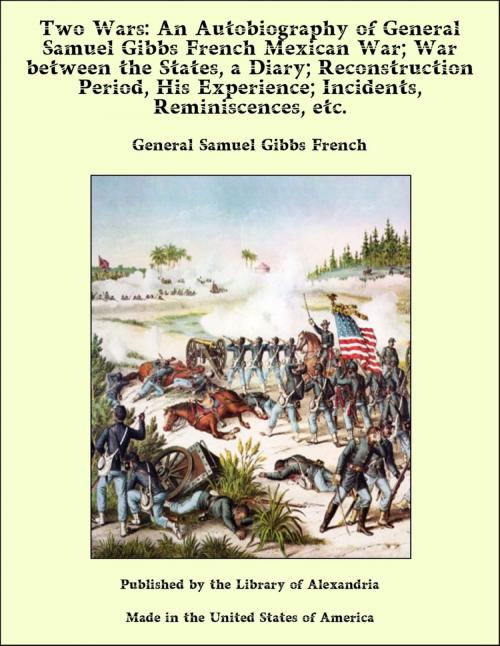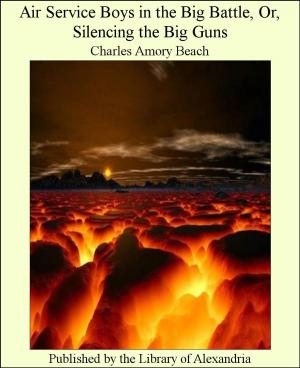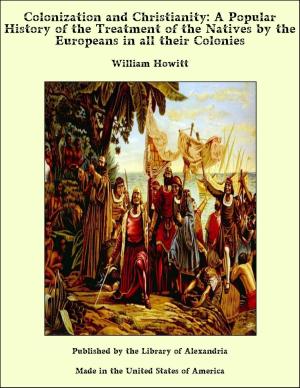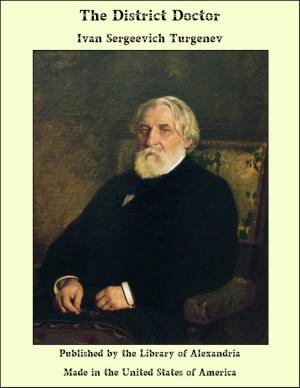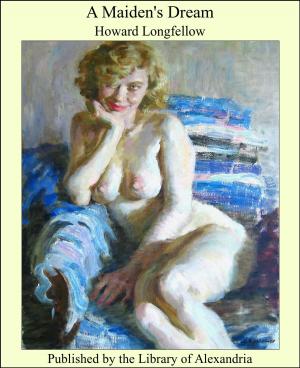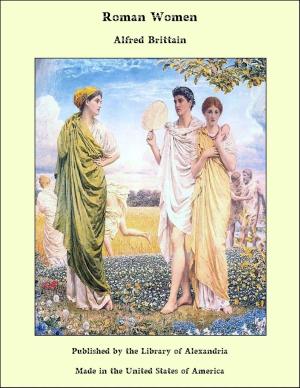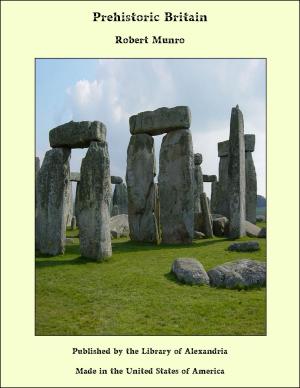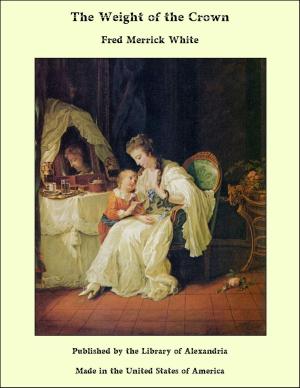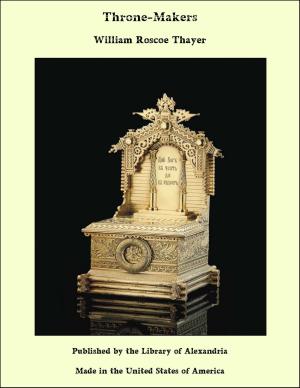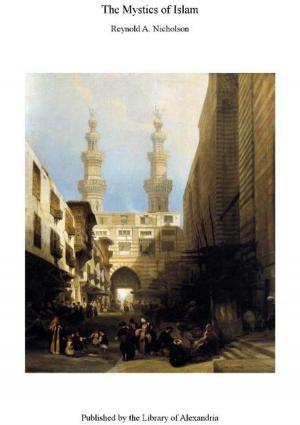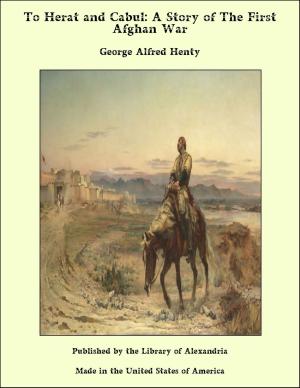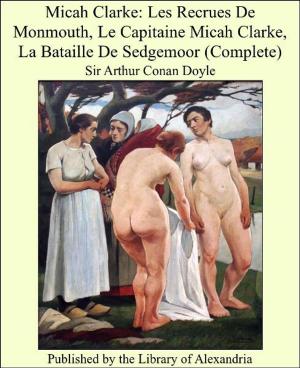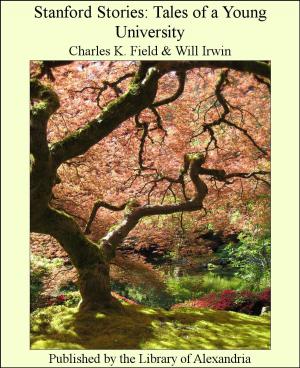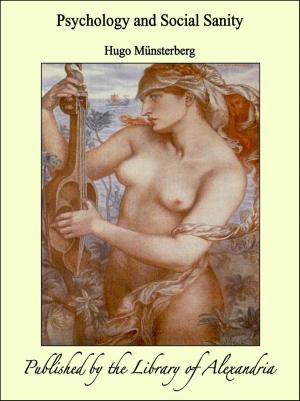Two Wars: An Autobiography of General Samuel Gibbs French Mexican War; War between the States, a Diary; Reconstruction Period, His Experience; Incidents, Reminiscences, etc.
Nonfiction, Religion & Spirituality, New Age, History, Fiction & Literature| Author: | General Samuel Gibbs French | ISBN: | 9781465616999 |
| Publisher: | Library of Alexandria | Publication: | March 8, 2015 |
| Imprint: | Language: | English |
| Author: | General Samuel Gibbs French |
| ISBN: | 9781465616999 |
| Publisher: | Library of Alexandria |
| Publication: | March 8, 2015 |
| Imprint: | |
| Language: | English |
Inasmuch as the government of this country cannot grant any title to nobility, nor can it be conferred by any foreign power, the people of the United States have, to gratify a natural pride, been obliged to obtain distinction in various ways. Among them may be mentioned the accumulation of money, political preferment, the pride of ancestry, and professional attainments. The pride of ancestry is a very laudable one, and no doubt it has a guiding influence in shaping the destiny of our lives. We discover it in the honor felt by the members of such societies as those of the Colonial wars, the Cincinnati, Sons of the Revolution, Aztec Club, Sons of Veterans, and many others. And it is true: "Those will not look forward to their posterity who never look backward to their ancestors." Of the countless millions of human beings who in successive generations have passed over the stage of life, most of them, on their exit, have sunk into oblivion. The names of twenty-seven are all that are known of the human family from man's creation down to the days of Noah. From the deluge to the present time a few men of great genius as poets, historians, warriors, conquerors, and criminals claimgeneral recognition from mankind. All others are relegated or consigned to the special history of a people, and thereby rescued from an otherwise oblivion. As individuals they perish. I am quite sure we are more indebted to Boswell for a true insight into the life and character of Samuel Johnson than we are to his writings, and there is the utmost interest attached to the home life of all the world's great actors. Even as late as our revolutionary war we find much interest in the part played by the fashionable ladies during the war, and gossip of the Wistar parties, and card parties of New York and Philadelphia. From the "Mischianza" we have a clear insight to the true and gentle character of Major André and his accomplishments; and the beauty of some of the Quaker City belles. Now in consideration of the desire of every gentleman to have a knowledge of his ancestry, and some knowledge of the times in which they lived, I purpose for the benefit of my children to write down somewhat of things I have seen and a part of which I was, and to make mention of some of the famous men with whom I have been acquainted during the eventful years between 1839 and the present time (1895). As I was an officer in the United States army from 1843 to 1856, and a major general in the Confederate army, I purpose to relate some of the events of the Mexican and Confederate wars in the course of this narrative.
Inasmuch as the government of this country cannot grant any title to nobility, nor can it be conferred by any foreign power, the people of the United States have, to gratify a natural pride, been obliged to obtain distinction in various ways. Among them may be mentioned the accumulation of money, political preferment, the pride of ancestry, and professional attainments. The pride of ancestry is a very laudable one, and no doubt it has a guiding influence in shaping the destiny of our lives. We discover it in the honor felt by the members of such societies as those of the Colonial wars, the Cincinnati, Sons of the Revolution, Aztec Club, Sons of Veterans, and many others. And it is true: "Those will not look forward to their posterity who never look backward to their ancestors." Of the countless millions of human beings who in successive generations have passed over the stage of life, most of them, on their exit, have sunk into oblivion. The names of twenty-seven are all that are known of the human family from man's creation down to the days of Noah. From the deluge to the present time a few men of great genius as poets, historians, warriors, conquerors, and criminals claimgeneral recognition from mankind. All others are relegated or consigned to the special history of a people, and thereby rescued from an otherwise oblivion. As individuals they perish. I am quite sure we are more indebted to Boswell for a true insight into the life and character of Samuel Johnson than we are to his writings, and there is the utmost interest attached to the home life of all the world's great actors. Even as late as our revolutionary war we find much interest in the part played by the fashionable ladies during the war, and gossip of the Wistar parties, and card parties of New York and Philadelphia. From the "Mischianza" we have a clear insight to the true and gentle character of Major André and his accomplishments; and the beauty of some of the Quaker City belles. Now in consideration of the desire of every gentleman to have a knowledge of his ancestry, and some knowledge of the times in which they lived, I purpose for the benefit of my children to write down somewhat of things I have seen and a part of which I was, and to make mention of some of the famous men with whom I have been acquainted during the eventful years between 1839 and the present time (1895). As I was an officer in the United States army from 1843 to 1856, and a major general in the Confederate army, I purpose to relate some of the events of the Mexican and Confederate wars in the course of this narrative.
